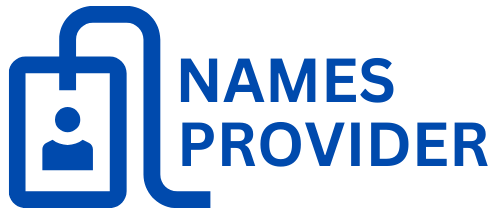Introduction
Embracing Qigong at home unlocks a world of health and wellness benefits accessible to individuals of all ages and abilities. In ancient Chinese traditions, Qigong harmonizes gentle movement, mindful breathing, and meditation, nurturing the body’s vital energy, or “qi.” With its immense adaptability, Qigong is an ideal practice for modern lifestyles, providing physical and mental advantages from the comfort of your living space. For those seeking convenient instruction, there are online Qigong classes for health and balance that guide you through routines and help establish a consistent home practice.
Qigong’s integrative approach supports overall well-being by addressing health holistically—improving circulation, calming the mind, and helping manage daily stressors. Unlike more strenuous activities, the low-impact nature of Qigong means it can be safely practiced by beginners and those managing chronic health conditions. Practicing at home ensures privacy, flexibility, and the ability to create a tranquil environment that enhances relaxation and focus during each session.
Enhanced Physical Health
Qigong’s flowing movements gently strengthen the body, improving flexibility and encouraging proper posture. As an accessible daily practice, Qigong stimulates blood flow to joints and muscles, easing stiffness and supporting joint health. According to the Cleveland Clinic, Qigong is linked to benefits such as lower blood pressure and improved cardiac function. Those with chronic health conditions, including arthritis and hypertension, may find that gentle Qigong routines help reduce symptoms and provide a safe, restorative form of exercise.
Many practitioners find that regular movement and mindful breathing support joint and muscle health and play a key role in pain management. By reducing inflammation and promoting relaxation, Qigong can help minimize discomfort associated with common musculoskeletal issues, all without equipment or strenuous activity.
Mental Clarity and Emotional Well-being
The meditative aspects of Qigong allow practitioners to anchor their awareness in the present moment, mitigating feelings of stress and anxiety. By synchronizing breath with purposeful movement, Qigong serves as a mindful escape from everyday worries, enabling calm reflection and emotional balance. Studies show that this practice may ease symptoms of depression and boost confidence as you cultivate a regular habit of self-care.
Over time, consistent engagement with Qigong has improved mental sharpness, helping you achieve a deeper sense of clarity and focus. The gentle rituals of movement and breathwork offer a pathway to sustained emotional stability, gently training the mind to respond to adversity with greater resilience and composure.
Improved Balance and Coordination
Aging, inactivity, or certain health conditions can compromise balance and physical coordination—two abilities essential for preventing injury. Qigong’s focus on slow, controlled moves engages the muscles and nervous system in ways that enhance proprioception, or body awareness. As a result, individuals develop stronger stabilization skills and more fluid mobility. Research published in BMC Complementary and Alternative Medicine underscores how Qigong can improve postural control and dynamic stability, which is particularly beneficial for older adults seeking to maintain independence.
Boosted Immune Function
Frequent Qigong sessions can help shore up your body’s natural defenses. The calming influence of meditative breathwork lowers circulating cortisol, a stress hormone that, in excess, can weaken immune response. Additionally, enhanced circulation during Qigong practice assists immune cells in moving efficiently throughout the body, supporting robust immune function. Medical findings indicate that regular involvement in Qigong reduces markers of inflammation and increases immune resilience.
Better Sleep Quality
Are you struggling with restless nights or insomnia? Qigong’s gentle routines can provide a soothing transition into restful sleep. By activating the parasympathetic nervous system and encouraging deep relaxation, Qigong helps calm the mind and body before bedtime. Clinical reviews confirm that individuals who incorporate Qigong into their nighttime routines benefit from improved sleep onset, longer duration, and better overall sleep quality.
Getting Started with Qigong at Home
Starting a Qigong practice at home is both approachable and deeply rewarding. Establishing a peaceful, uncluttered area for your practice helps set the stage for focus and relaxation. Begin by dedicating 10–15 minutes daily to Qigong, gradually increasing practice time as your comfort and familiarity grow. Online resources, including video demonstrations and tutorials, make it easy for newcomers to learn correct postures, transitions, and breathing methods.
- Choose a Quiet Space: Select a calm, distraction-free zone for better concentration.
- Set a Regular Schedule: Consistency helps reinforce progress and routine.
- Follow Guided Sessions: Leverage instructional online classes to perfect your technique and explore the breadth of Qigong styles.
- Listen to Your Body: Move mindfully and avoid overstretching to prevent injury.
- Stay Patient: Improvement comes gradually—celebrate small milestones along your journey.
For anyone looking to build a sustainable, effective wellness routine, Qigong provides accessible, powerful benefits for mind and body. With practice, you’ll notice a calmer mindset, increased vigor, and a deeper sense of personal balance, complementing your other lifestyle habits naturally and holistically.




